 Ética y medicina regenerativa
Ética y medicina regenerativa
Este número 7 dedica su sección de debate a la ética y la medicina regenerativa, coordinado por Itziar Alkorta (UPV/EHU), Iñigo de Miguel y David Rodríguez-Arias (Cátedra Derecho y Genoma Humano, Universidad de Deusto-UPV/EHU).
Son muchas las expectativas y los retos que plantea la medicina regenerativa, tal y como se plantea en la Presentación. La sección incluye tres artículos con un enfoque interdisciplinar, entre la bioética, la biopolítica y el bioderecho. Si Vellón y Martin plantean el papel crucial de los biobancos en el desarrollo de la medicina regenerativa, Mahalatchimy, Rial-Sebbag, Tournay y Faulkner presentan por su parte los diferentes modos de regulación en Francia y Reino Unido sobre el uso de células madre en la investigación, mientras que el trabajo de Penasa eleva el marco de análisis de esta regulación al contexto de la Unión Europea y la contraposición entre un modelo regulatorio basado en valores y otro de carácter procedimental.
En la sección de artículos se discute, desde diferentes perspectivas, el modelo social de la discapacidad, con sendos artículos de Isabel Balza
(Universidad de Jaén) y Melania Moscoso (Instituto de Filosofía, CCHS, CSIC).
El volumen se cierra con dos reseñas en profundidad relativas a una edición de textos de Locke y a un interesante ensayo sobre el suicidio.
Están cordialmente invitados a consultar la revista, a enviar sus comentarios (hemos habilitado un espacio para tal función) y a remitir sus
propuestas de artículos y reseñas. ¡Ojalá DILEMATA sea también su revista!
**********************************************************
DILEMATA 7(2011) [ISSN 1989-7022], International Journal of Applied Ethics
Available in open access at http://www.dilemata.net/revista/index.php/dilemata/issue/view/8/showToc
DILEMATA, International Journal of Applied Ethics, reaches its seventh issue with a special section on the ethics of regenerative medicine, edited by Itziar Alkorta (UPV/EHU), Iñigo de Miguel & David Rodríguez-Arias (Cátedra Derecho y Genoma Humano, Universidad de Deusto-UPV/EHU).
The special section addresses some of the hopes and challenges regenerative medicine has risen within perspectives such as bioethics, biopolitics and biolaw. In their articles, Vellón & Martin discuss the role of biobanks in regenerative medicine, while Mahalatchimy, Rial-Sebbag, Tournay & Faulkner describe different regulative frameworks in the UK and France for stem cell research; the article by Penasa moves on to discuss this issue at the European level, contrasting a regulatory model based on values with a procedural one.
This issue of Dilemata includes two articles discussing disability rights and their underlying social models, by Isabel Balza (Universidad de Jaén) and Melania Moscoso (Instituto de Filosofía, CCHS, CSIC). There are also two book reviews, on the ethics of suicide and on a new edition of Locke's political texts.
We hope that DILEMATA remains attracting your interest, and encourage you to take part in this project, either by sending your proposals for
consideration and book reviews, or by replying to the debates already opened in this or previous issues. May DILEMATA be your journal, too!


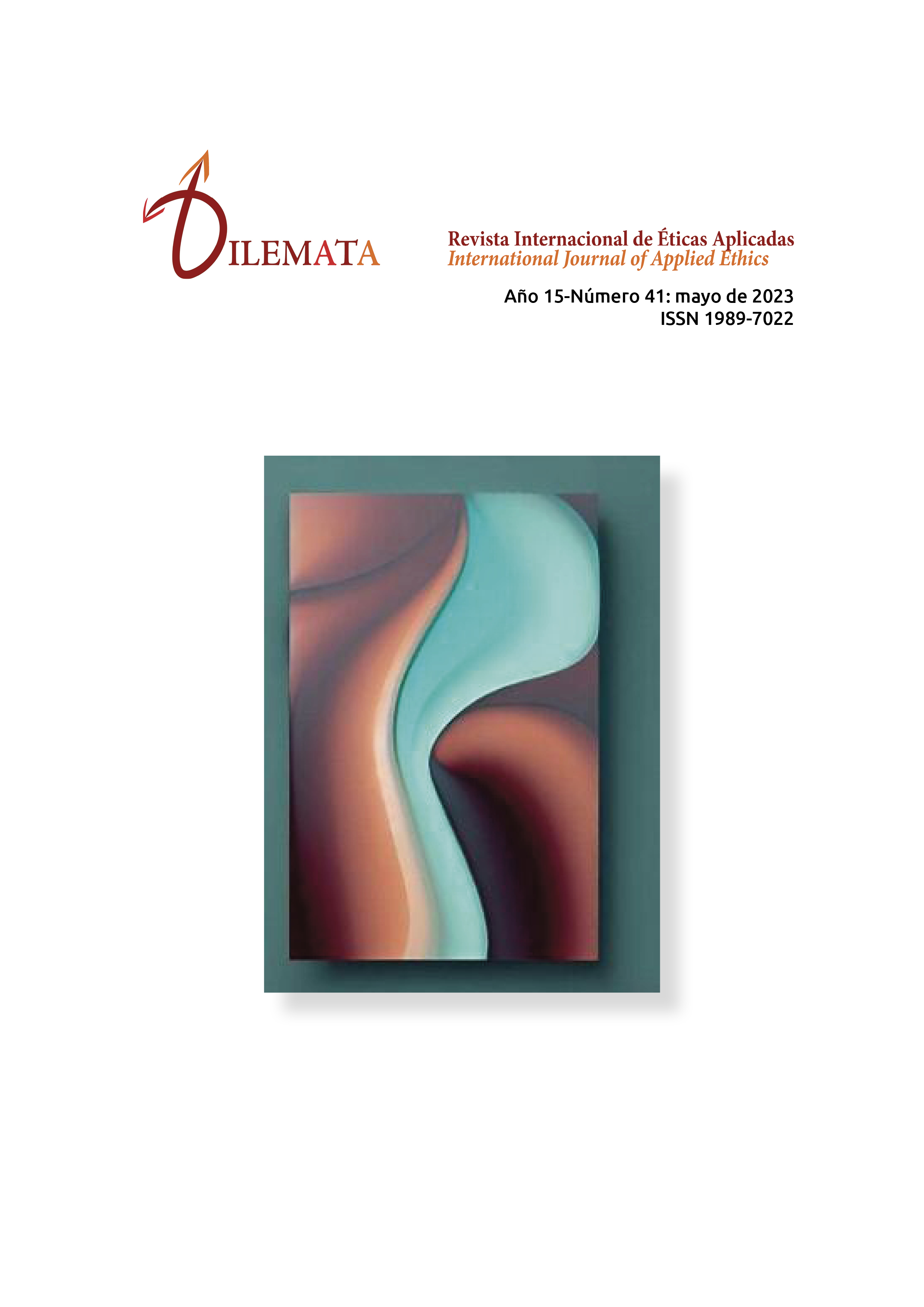 Nº 41, mayo 2023
Nº 41, mayo 2023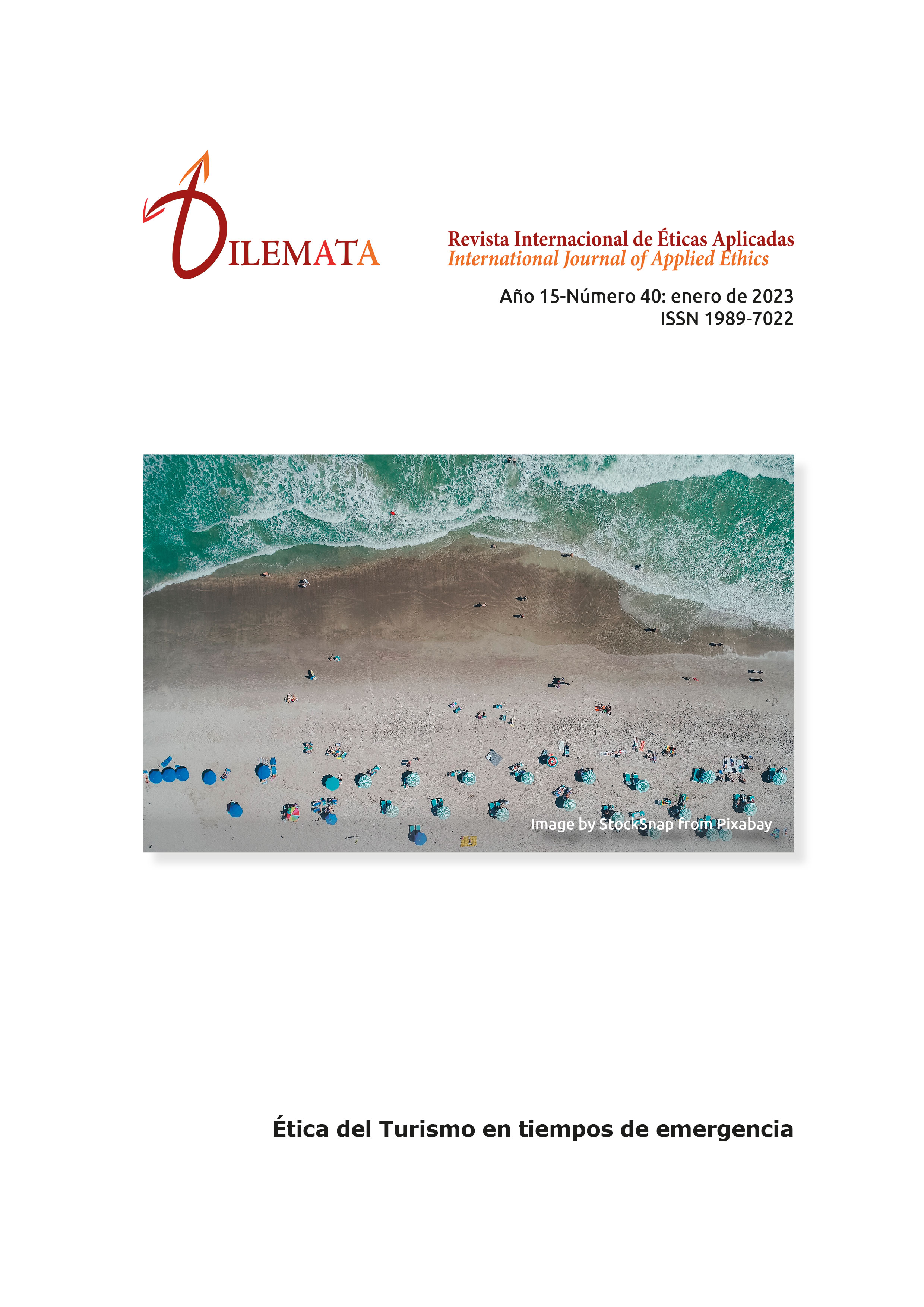 Nº 40, enero 2023
Nº 40, enero 2023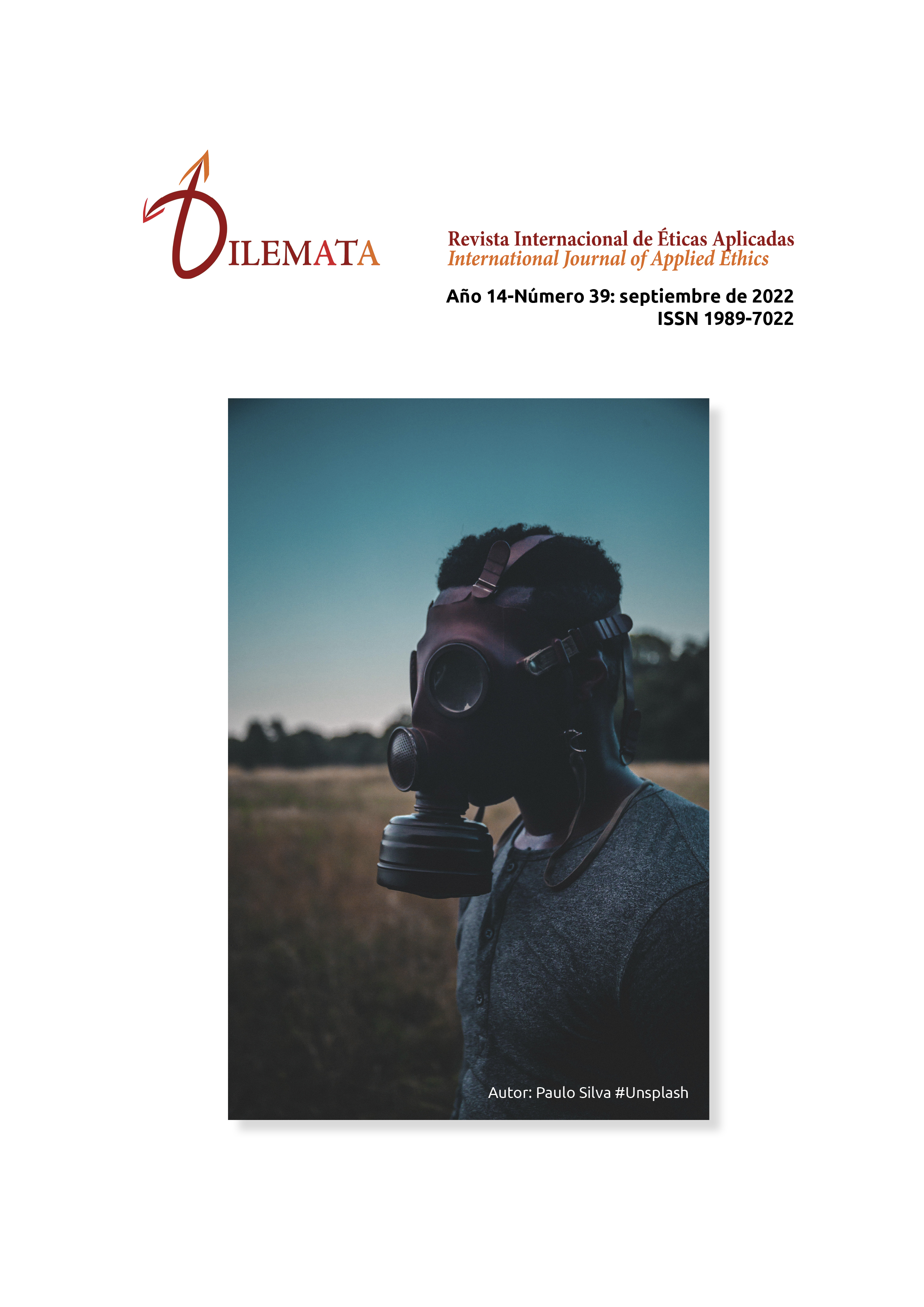 Nº 39, septiembre 2022
Nº 39, septiembre 2022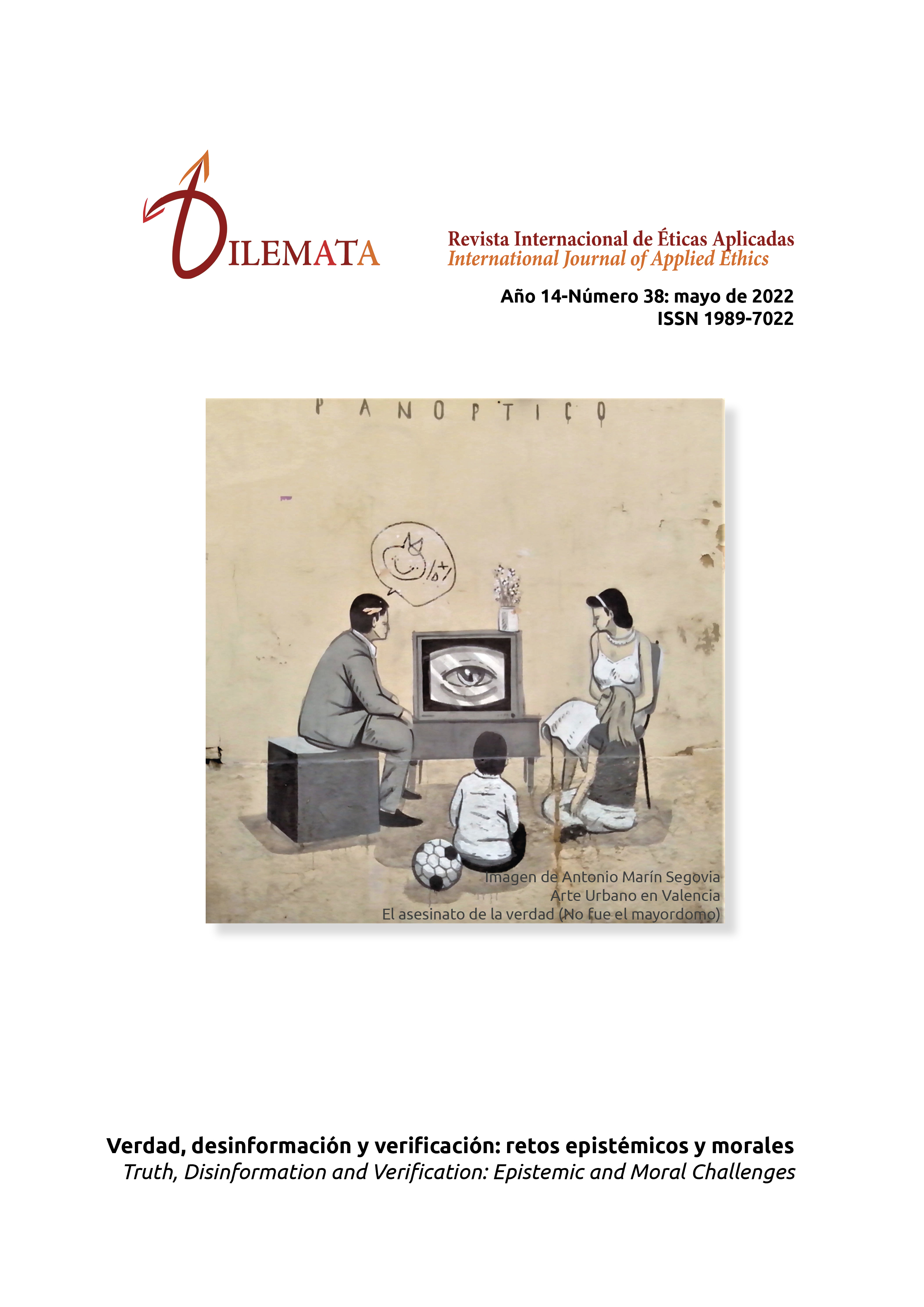 Nº 38, mayo 2022
Nº 38, mayo 2022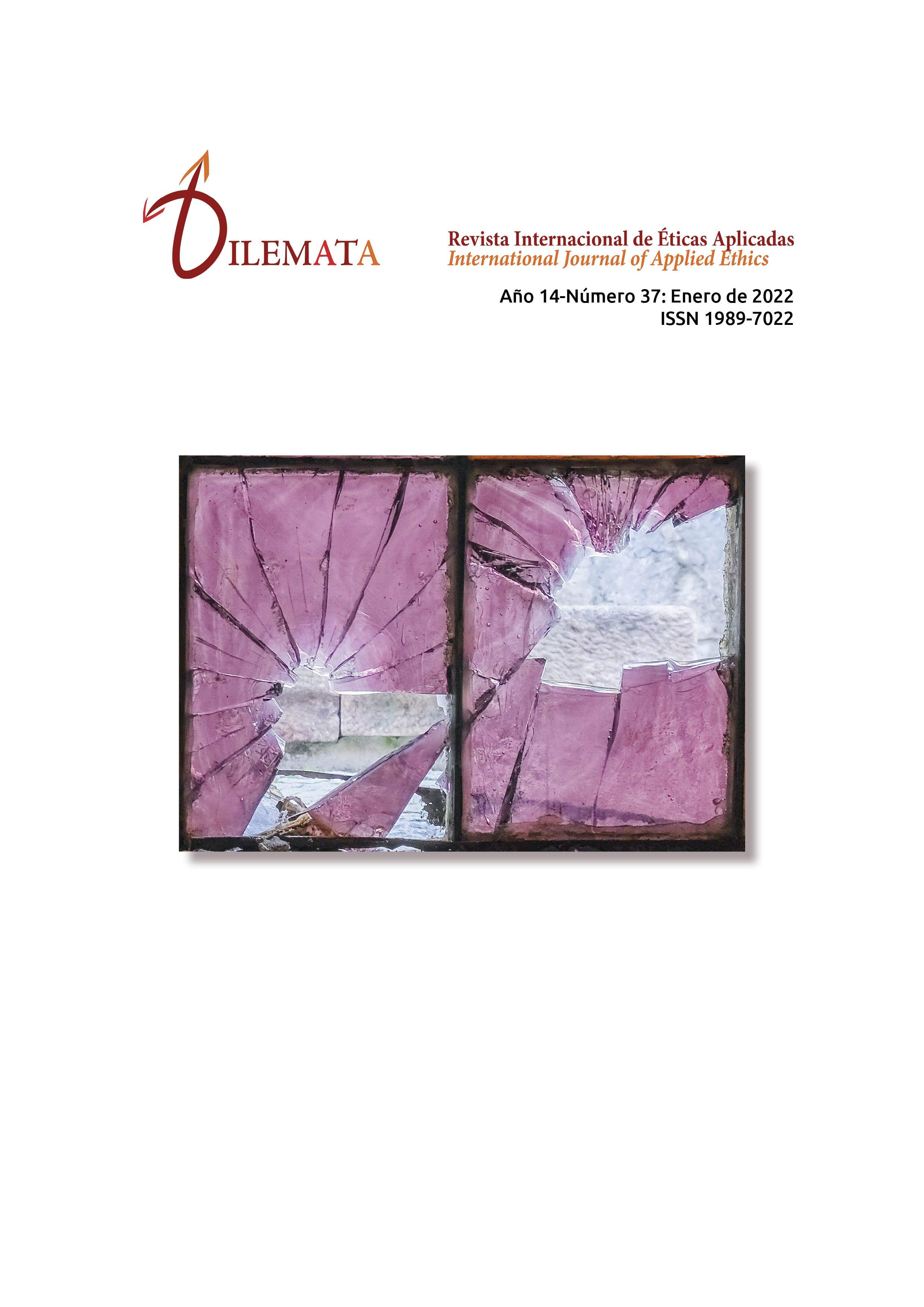 Nº 37, enero 2022
Nº 37, enero 2022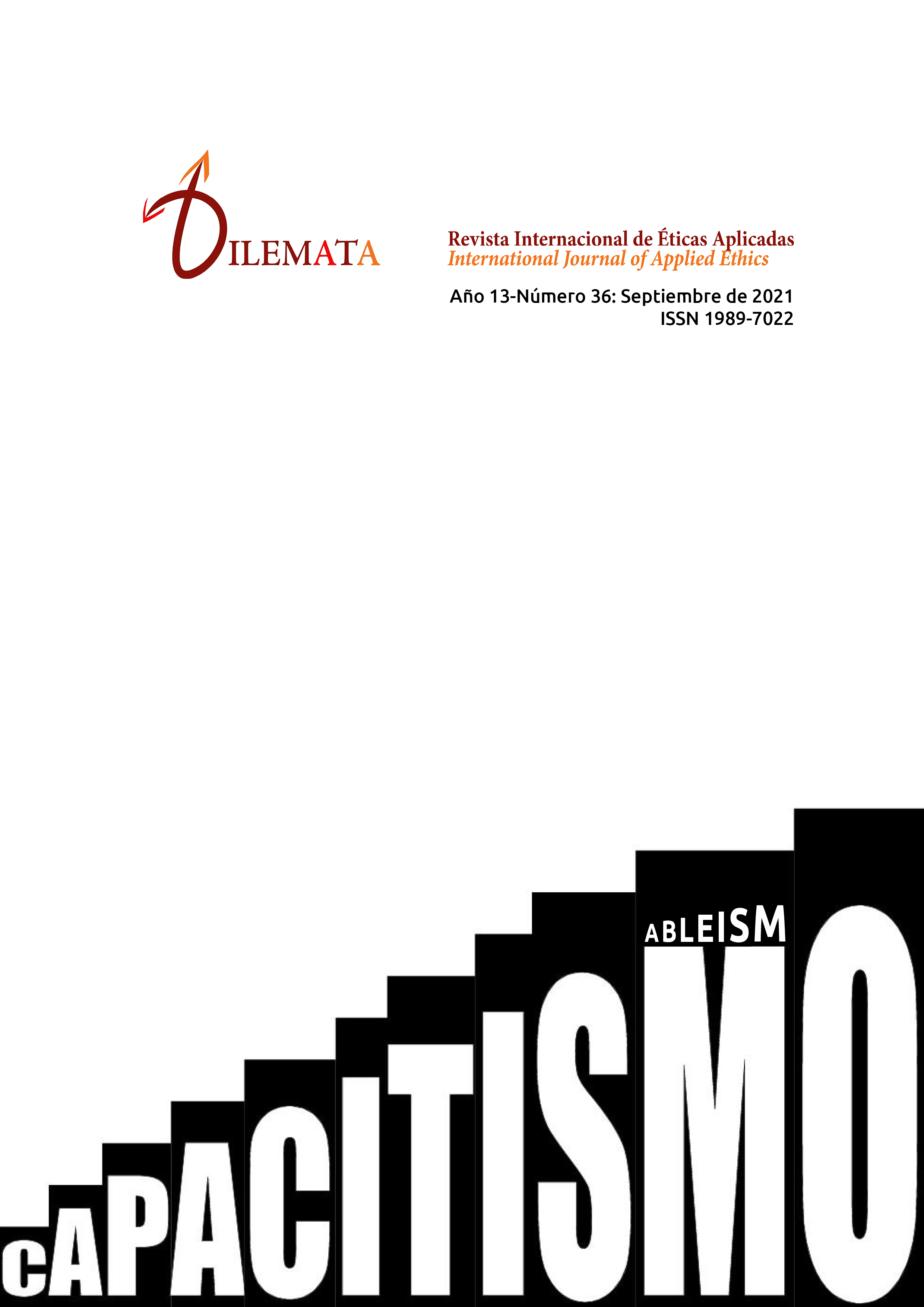 Nº 36, septiembre 2021
Nº 36, septiembre 2021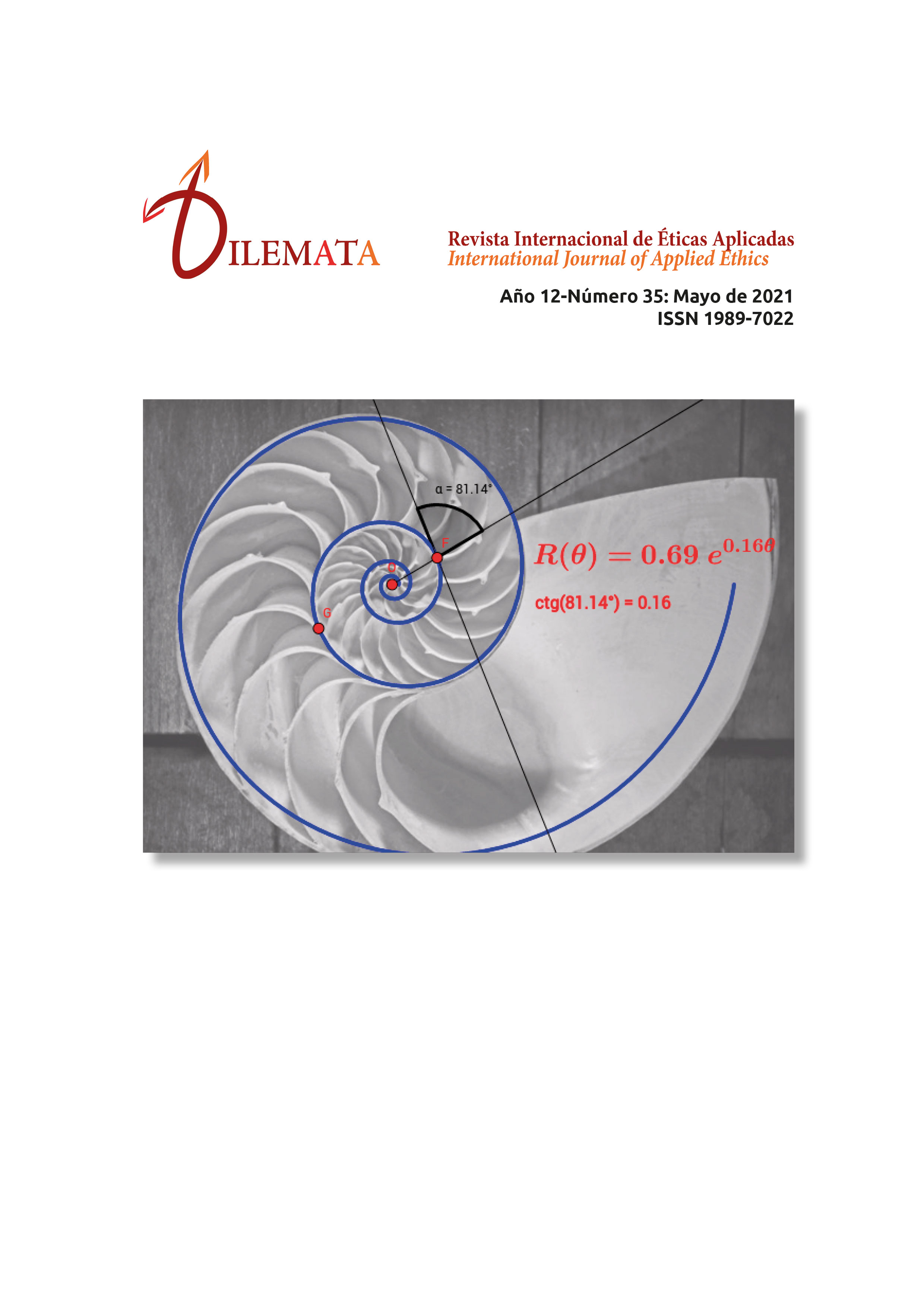 Nº 35, mayo 2021
Nº 35, mayo 2021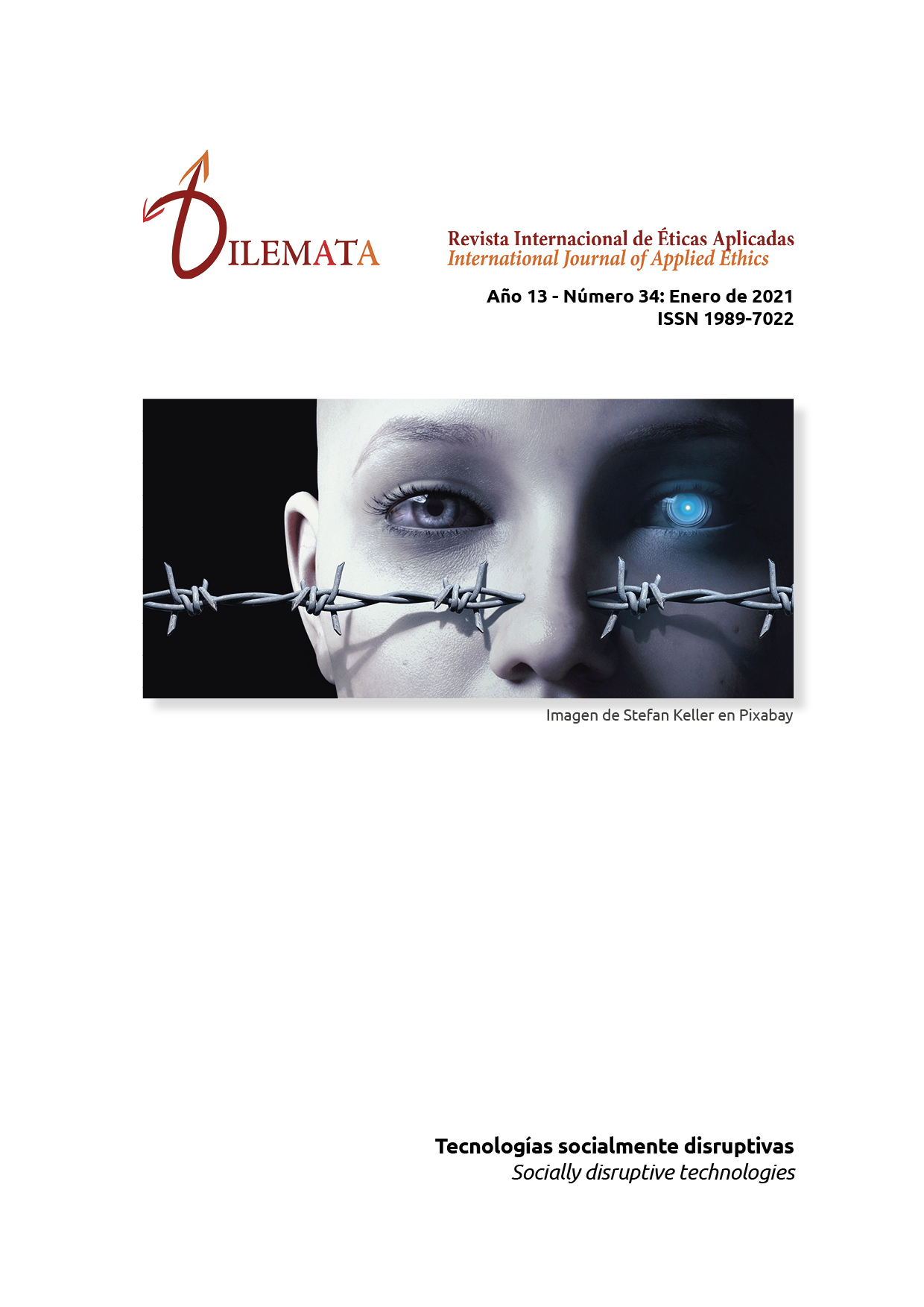 Nº 34, enero 2021
Nº 34, enero 2021